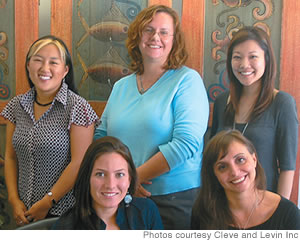Changes In Interior Design

|
Interior design is the best profession in the world for someone who has a low threshold of boredom! We hate doing the same thing twice. It is not the way of the designer to find a comfortable niche and stick to it. If we do a project similar to one we have already done, we look for new and innovative ways to make the latest one better or to learn something new. With new materials constantly coming onto the market, and with constantly developing methods of communication, there is always something new to learn.
As methods of communication in the industry change, they have also changed the way we practice. From pencil and paper to computer drafting, from e-mail and faxes to FTP sites, the method of communication alters the way we do business.
The popular image of the interior designer with piles and piles of fabrics and catalogs of furniture and outrageous lamps is only partially true. What you don’t see are the hours and hours spent in communicating the design to the people who will be executing it, producing the final results. What they don’t tell you in design school is that you will spend about 25 percent of your time designing and the other 75 percent communicating that design.
As you might imagine, as a designer I love designing, but I am not happy about spending 75 percent of the time communicating. I spend a lot of time thinking about how I can simplify and condense that time. At the same time, I am also thinking about accuracy. If I can reduce the time and increase the accuracy I can get more done and have much more fun doing it.
I knew that computers were the answer. The problem is that computer software designers and interior designers exist in parallel universes. Computer software designers would have no idea that such a program was needed, and interior designers, for the most part, don’t have the time or the energy at the end of the day to think about automation.
We were asked to design the renovation of the Airport Hotel, formerly the Airport Holiday Inn. As this was an older hotel and the project had a tight budget, we went to the idea of writing a database for the organization of all of the information about the condition of the existing furnishings and where each piece was located, as well as documenting the new furnishings. This time we worked with a young database designer to write a program not only for this project, but for future projects. We asked him to work with us through the design process to automate all of the documentation and communication, and write a program for us that could be reused. For that effort, we won the first PonoTech award, presented in 2000 to firms who used technology in business that were not IT-related.
We have continued to work with this database, updating and improving it as hardware and software evolved. With this platform and experience, we were always looking for ways to use developing technology to shoulder the more routine work of communicating interior design processes.
The continuing question was how to communicate and interact with the owner/client and make decisions that will be custom-designed for each individual. With that focus, we put together a collection of furnishings, fabrics, artwork and accessories along with estimated budgets. Our clients can access the website from anyplace in the world, and by letting us know their preferences for a few key items, we can put a whole package together for them.
I don’t know if this is the future direction of interior design, but it is a new way to communicate with our clients - and that is exciting. As more and more people become comfortable purchasing from the Internet, we think that this will fill a need that has not been met previously. For our clients who are not comfortable working on the Internet, we have printed the same content in a brochure.
E-mail this story | Print this page | Comments (0) | Archive | RSS Comments (0) |
Most Recent Comment(s):




 Del.icio.us
Del.icio.us








